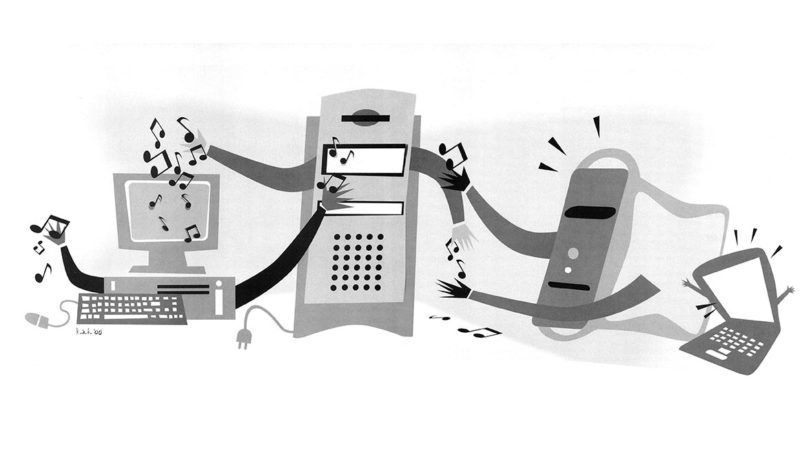From the Archives: October 2020
Excerpts from Reason's vaults

15 Years Ago
October 2005
"Scalia is hardly the only justice whose personal values bleed into his rulings. He is, however, the one most critical of his colleagues for allowing their decisions to be dictated by ideological preferences. There is no reason to believe Scalia is consciously hypocritical on any issue. Yet time and again, his strict construction of the Constitution happens to coincide, almost precisely, with some ideological preference of his own."
Cathy Young
"Antonin Scalia, Judicial Activist"
"In the unlikely event that a terrorist with a bomb is picked for a search, he can simply say no and exit the system with no questions asked. (It has to be that way so the city can argue in court that the searches are voluntary.) Upon leaving the subway, he can try again at another station, pass his bag to an accomplice, or detonate his bomb at a crowded location above ground."
Jacob Sullum
"Pansies of New York"
20 Years Ago
October 2000
"Rock and the larger pop music scene are so clearly a function of the wealth, innovation, and leisure time thrown off by capitalism that it should be nothing less than mind-boggling that pop stars themselves mutter incessantly about toppling the very system that pays them so well. But to most rock stars and rock critics, the link between the music and left-wing politics is so natural and so expected that it is simply assumed."
Brian Doherty
"Rage On"
"When disco died, the record industry did not start taking new wave bands to court, demanding that they stop competing with the Bee Gees and kindred has-beens. It went hunting for every Ric Ocasek clone it could find, intent on exploiting the latest Next Big Thing until audiences found it as intolerable as disco."
Jesse Walker
"Music for Nothing"
35 Years Ago
October 1985
"It doesn't matter whether censorship assumes the guise of orthodox obscenity statutes or the newer and more insidious mask of bogus civil-rights measures. The ultimate consequences are identical—less freedom, more tyranny. Dozens of local governments are now considering restrictive laws patterned after the Indianapolis ordinance. Americans should know better; censorship has flourished before, and we know that it inexorably produces stifling conformity. No intelligent person should wish to repeat that tragedy."
Ted Carpenter
"Porn Busters"
"A nation's force level tends to be set by default: it is the result of political and bureaucratic struggling. For those who seek to control armaments in the world, an understanding of this 'structural' aspect of militarism is an indispensable starting point. A nation's armed forces are not only, or even primarily, the result of conscious, calculating leadership decisions, as many arms-control theorists would have it. Rather, the size and character of a nation's armed forces are shaped by the structure of the regime and the political processes within it."
James Payne
"Marxists: They Love a Man in a Uniform"
"The humanities, whether they should or shouldn't be revived for other reasons, are not very useful. Students are not leaving the humanities in droves because they want marketable skills whereas in the humanities' heyday they were less job-oriented. They are leaving the humanities because a liberal arts education no longer offers marketable skills, as it did in the old days—the intellectual skills that men and women need to prosper in a free society."
Max Hocutt
"Humanities' Ills"
45 Years Ago
October 1975
"Libertarians who are no doubt accustomed to meeting their ideas in caricature have probably been told that in a libertarian world—one with private streets, private mass transit, private utilities of all descriptions, private ownership of redwood trees and alligators—everything would have an explicit price to it. To walk on the streets, to visit the parks, individuals would be required to make an explicit contract. That this is in fact a distortion can be seen because the real world has been kind enough to provide Walt Disney World, a contractual city which bears no resemblance to the caricature."
David Levy
"Learning Economics From Walt Disney World"
"Would you rather have a gun and not need it, or—if the state has its say—be forced into a situation where a weapon is desperately needed, but you aren't allowed to have one? This choice by the individual may soon become as extinct as the dodo bird if the state continues on its merry way of grabbing up the rights and freedoms of the individual. However, your right to own a gun, or anything else, should not be argued on the basis of some sort of special pleading to the state."
Morgan Norval
"Why We Need Guns"

Show Comments (29)